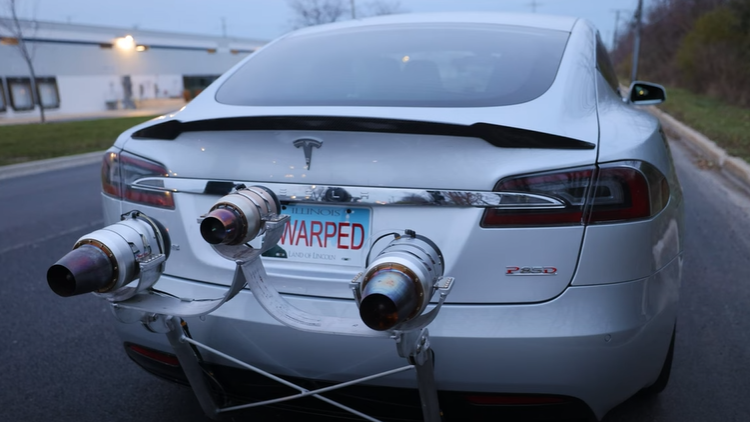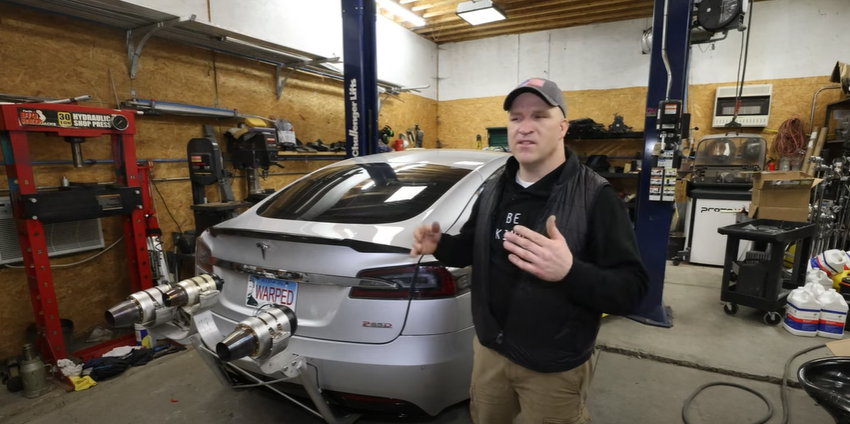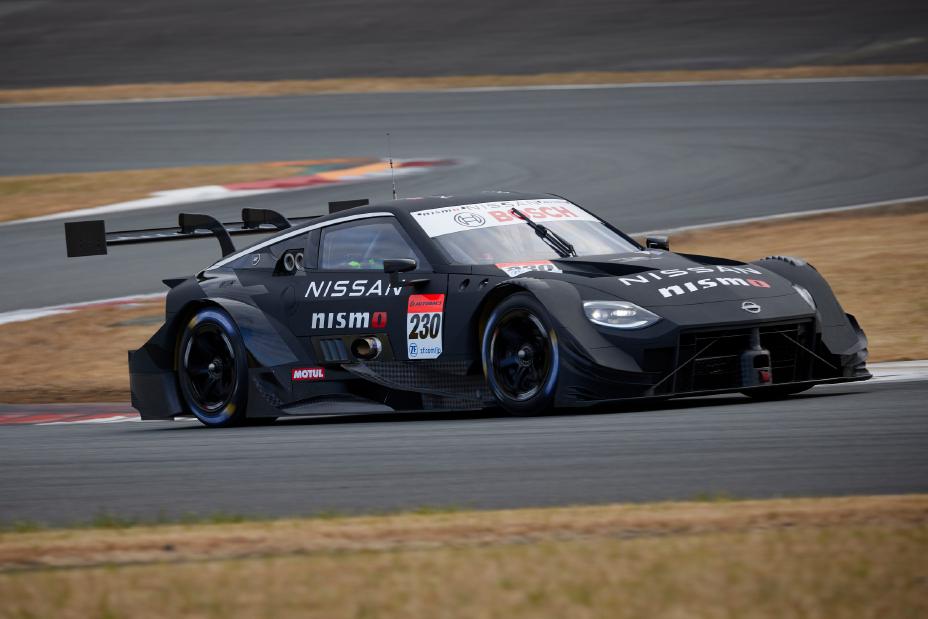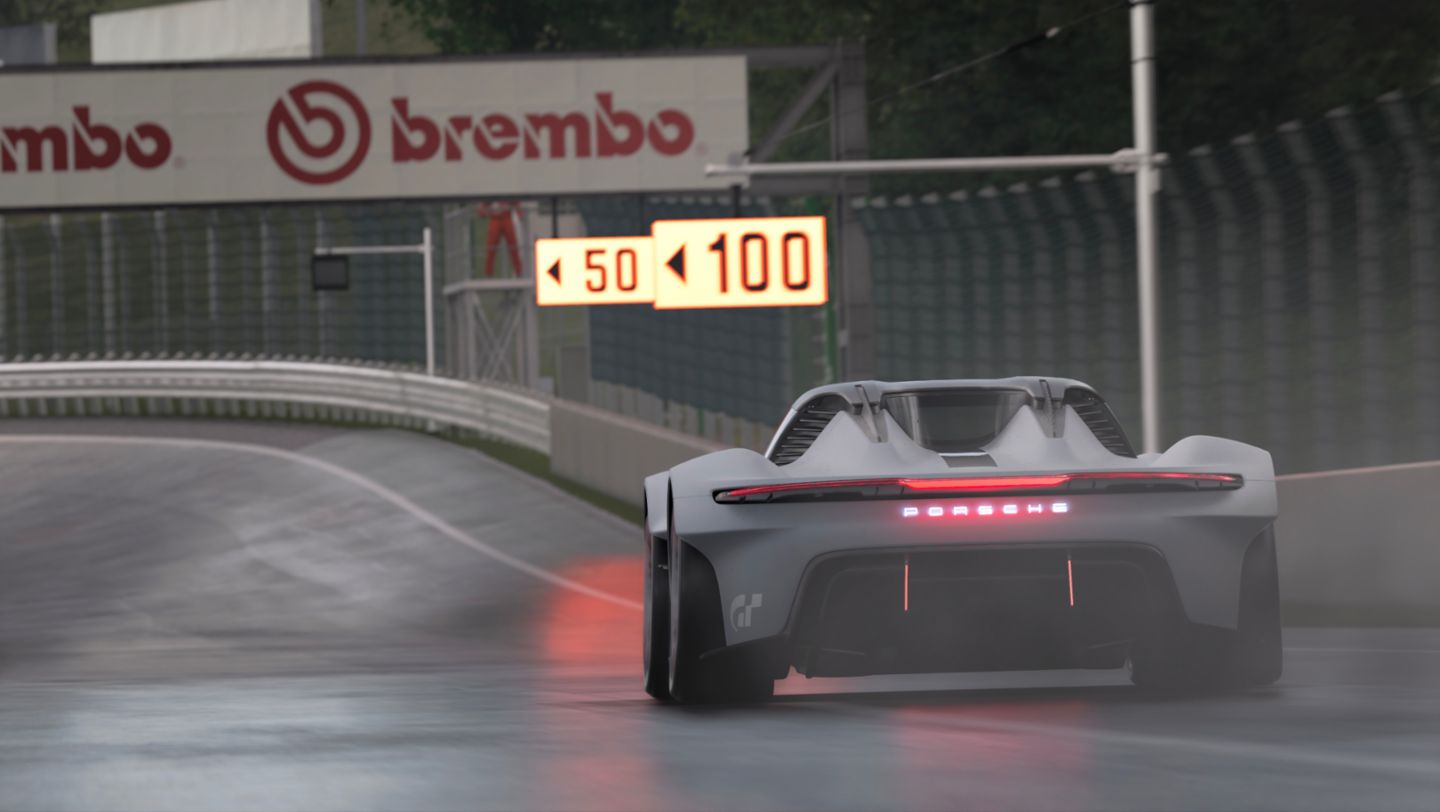Man Creates World’s First Jet-Propelled Tesla Model S

Supposedly, the Tesla Roadster - once it eventually arrives - will have optional Space X rockets to enable a 1.1-second 0-60mph. A while ago Engineering Explained posted a great video working out whether or not these cold gas thrusters would deliver the ridiculous 0-60mph time. Rather than delve into the theory, though, what we have here is a more practical investigation.
In this video from ‘Warped Perception’, self-described purveyor of “science and engineering fun,” we’re meticulously taken through every minute detail behind constructing the world’s first jet-powered Tesla Model S. Oh yes.
Matt begins by explaining how he built the jet control panels, followed by the rear controls. Next is the installation of the triple jet engine thrusters themselves, after which he fits in the expectedly gigantic fuel tank (that wouldn’t at all make a racket in the case of an explosion). The complex procedure is then completed with the admission of a fuel gauge. Warped Perception’s confidence in his creation is visibly evident by this point.

The second half of the video is then modelled around a series of tests that he puts his Jet Model S through, beginning with the coveted ‘’let’s see how much trash we can blow around in the alleyway with my jet thrusters’’ test. Caution: this may invoke your inner eight-year-old.
See also: Hearing The World’s First V8-Swapped Tesla In Action Is Downright Bizarre
He then attempts a few real-world scenario tests with it, driving it along the freeway, before stopping for fuel to see just how big a hole has been burned through his pocket. The video is drawn to a close after a few 0-60mph runs – with the car achieving that speed a whole second quicker than with the thrusters turned off, at a time of just 3.32 seconds, highlighting the success of his impressive experiment.


Comments